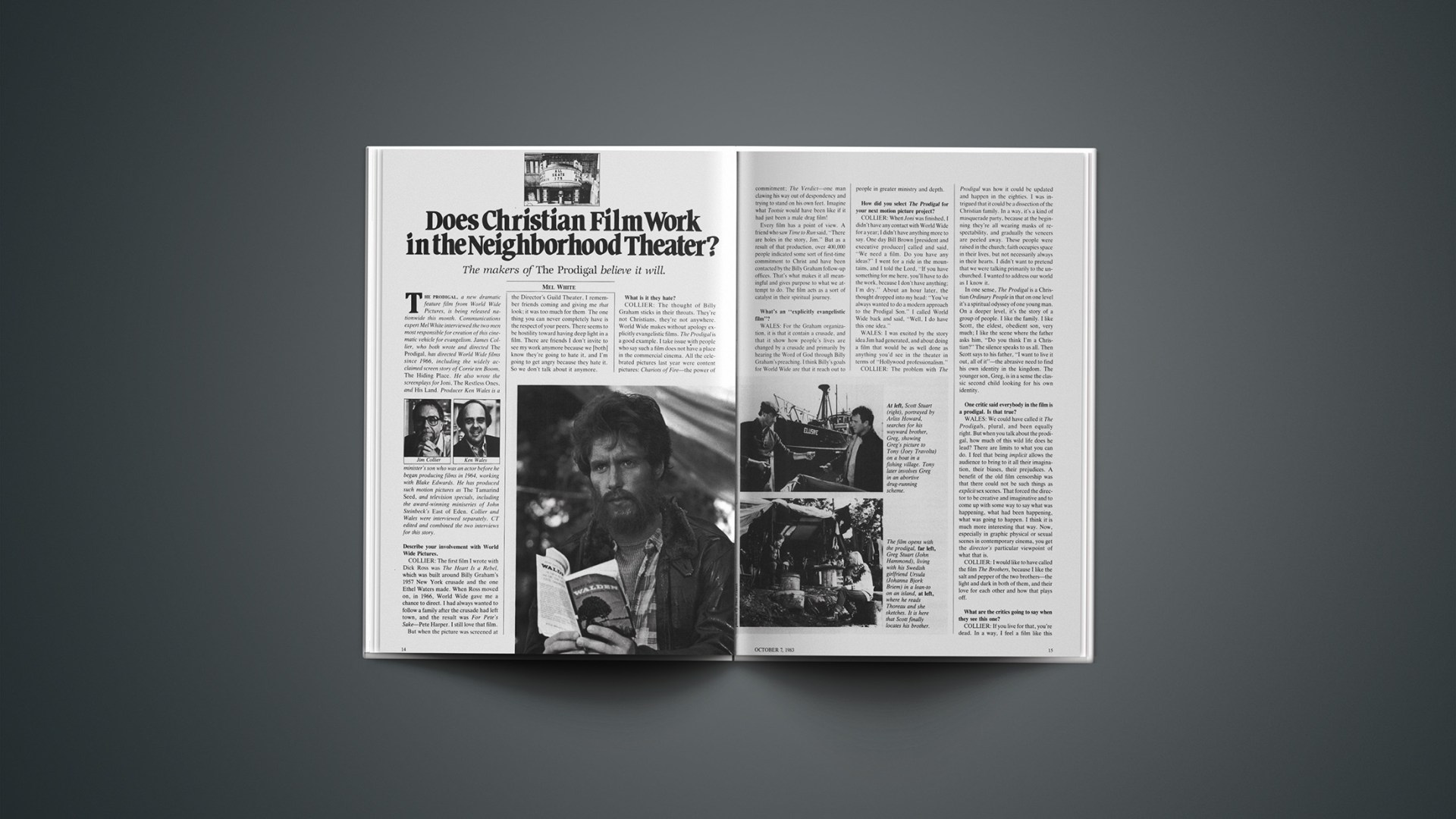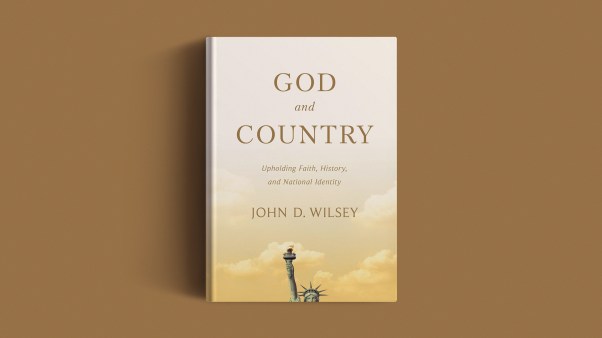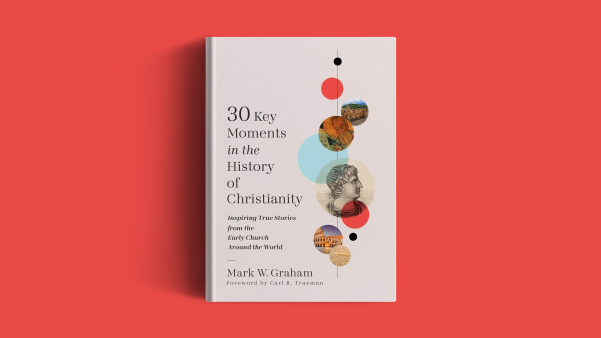The makers of The Prodigal believe it will.
The Prodigal, a new dramatic feature film from World Wide Pictures, is being released nationwide this month. Communications expert Mel White interviewed the two men most responsible for creation of this cinematic vehicle for evangelism. James Collier, who both wrote and directed The Prodigal, has directed World Wide films since 1966, including the widely acclaimed screen story of Corrie ten Boom, The Hiding Place. He also wrote the screenplays for Joni. The Restless Ones, and His Land. Producer Ken Wales is a minister’s son who was an actor before he began producing films in 1964, working with Blake Edwards. He has produced such motion pictures as The Tamarind Seed, and television specials, including the award-winning miniseries of John Steinbeck’s East of Eden. Collier and Wales were interviewed separately. CT edited and combined the two interviews for this story.
Describe your involvement with World Wide Pictures.
COLLIER: The first film I wrote with Dick Ross was The Heart Is a Rebel, which was built around Billy Graham’s 1957 New York crusade and the one Ethel Waters made. When Ross moved on, in 1966, World Wide gave me a chance to direct. I had always wanted to follow a family after the crusade had left town, and the result was For Pete’s Sake—Pete Harper. I still love that film.
But when the picture was screened at the Director’s Guild Theater, I remember friends coming and giving me that look; it was too much for them The one thing you can never completely have is the respect of your peers. There seems to be hostility toward having deep light in a film. There are friends I don’t invite to see my work anymore because we [both] know they’re going to hate it, and I’m going to get angry because they hate it. So we don’t talk about it anymore.
What is it they hate?
COLLIER: The thought of Billy Graham sticks in their throats. They’re not Christians, they’re not anywhere. World Wide makes without apology explicitly evangelistic films. The Prodigal is a good example. I take issue with people who say such a film does not have a place in the commercial cinema. All the celebrated pictures last year were content pictures: Chariots of Fire—the power of commitment; The Verdict—one man clawing his way out of despondency and trying to stand on his own feet. Imagine what Tootsie would have been like if it had just been a male drag film!
Every film has a point of view. A friend who saw Time to Run said, “There are holes in the story, Jim.” But as a result of that production, over 400,000 people indicated some sort of first-time commitment to Christ and have been contacted by the Billy Graham follow-up offices. That’s what makes it all meaningful and gives purpose to what we attempt to do. The film acts as a sort of catalyst in their spiritual journey.
What’s an “explicitly evangelistic film”?
WALES: For the Graham organization, it is that it contain a crusade, and that it show how people’s lives are changed by a crusade and primarily by hearing the Word of God through Billy Graham’s preaching. I think Billy’s goals for World Wide are that it reach out to people in greater ministry and depth.
How did you select The Prodigal for your next motion picture project?
COLLIER: When Joni was finished, I didn’t have any contact with World Wide for a year; I didn’t have anything more to say. One day Bill Brown [president and executive producer] called and said, “We need a film. Do you have any ideas?” I went for a ride in the mountains, and I told the Lord, “If you have something for me here, you’ll have to do the work, because I don’t have anything; I’m dry.” About an hour later, the thought dropped into my head: “You’ve always wanted to do a modern approach to the Prodigal Son.” I called World Wide back and said, “Well, I do have this one idea.”
WALES: I was excited by the story idea Jim had generated, and about doing a film that would be as well done as anything you’d see in the theater in terms of “Hollywood professionalism.”
COLLIER: The problem with The Prodigal was how it could be updated and happen in the eighties. I was intrigued that it could be a dissection of the Christian family. In a way, it’s a kind of masquerade party, because at the beginning they’re all wearing masks of respectability, and gradually the veneers are peeled away. These people were raised in the church; faith occupies space in their lives, but not necessarily always in their hearts. I didn’t want to pretend that we were talking primarily to the unchurched. I wanted to address our world as I know it.
In one sense, The Prodigal is a Christian Ordinary People in that on one level it’s a spiritual odyssey of one young man. On a deeper level, it’s the story of a group of people. I like the family. I like Scott, the eldest, obedient son, very much; I like the scene where the father asks him, “Do you think I’m a Christian?” The silence speaks to us all. Then Scott says to his father, “I want to live it out, all of it”—the abrasive need to find his own identity in the kingdom. The younger son, Greg, is in a sense the classic second child looking for his own identity.
One critic said everybody in the film is a prodigal. Is that true?
WALES: We could have called it The Prodigals, plural, and been equally right. But when you talk about the prodigal, how much of this wild life does he lead? There are limits to what you can do. I feel that being implicit allows the audience to bring to it all their imagination, their biases, their prejudices. A benefit of the old film censorship was that there could not be such things as explicit sex scenes. That forced the director to be creative and imaginative and to come up with some way to say what was happening, what had been happening, what was going to happen. I think if is much more interesting that way. Now, especially in graphic physical or sexual scenes in contemporary cinema, you get the director’s particular viewpoint of what that is.
COLLIER: I would like to have called the film The Brothers, because I like the salt and pepper of the two brothers—the light and dark in both of them, and their love for each other and how that plays off.
What are the critics going to say when they see this one?
COLLIER: If you live for that, you’re dead. In a way, I feel a film like this should not be reviewed. Some will be offended by Billy Graham preaching; others will be drawn by it. And this is the whole mystery of the kingdom. I showed the film to two friends I knew were interested in seeing what had been done. They were anti-Graham’s appearance just on general principles, because they knew it was going to be a crusade and it would not be dramatic. You see, it’s the dramatic principle that’s violated here—if you’re into the story and suddenly you’re being preached at, you’ve shifted gears. People don’t want to be manipulated.
The Prodigal*
World Wide Pictures; screenplay by lames Collier; directed by James Collier, produced by Ken Wales
This new film from the Billy Graham Association is obviously a labor of love, the work of professionals concerned equally with their craft and their urgent message. Religious conversion is, however, perhaps the most difficult human experience to duplicate in a dramatic setting. It is often like listening to one side of a two-way argument.
The Prodigal is visually stunning. Cinematographer Frank Stanley’s lovely images never betray the film’s small budget and short shooting schedule. It is unfortunate that much of his lush photography will be lost when transferred to the smaller 16mm format and exhibited in churches and community halls ill equipped to screen motion pictures of this quality.
Impressive, too, is the superlative cast: a mixture of veteran actors and relative newcomers who struggle to contemporize Christ’s parable of the wayward son. John Hammond is Greg Stuart, the disillusioned “prodigal” searching for a fatted calf in the myriad dust-laden corners society offers its aimless wanderers. His father (John Cullum) is enthroned at the center of a whirling lifestyle that has spun all those close to him to the outer edges of recognition: Greg to his bohemian existence; older son Scott (Arliss Howard) to an inner-city ghetto where he attempts to rediscover his childhood faith; his wife (Hope Lange) nearly into the arms of another man. In short, there is not one prodigal, but four, each groping down the long road home.
Like all Billy Graham films, The Prodigal challenges Christians and non-Christians alike to seek the healing power of the Great Physician. The film stumbles, however, in its treatment of Greg’s rebellious lifestyle. It is a sanctified view of sin that doesn’t always ring true. He remains an object lesson viewed from the outside. That crucial error is not uncommon in most evangelical films. Too often, in order to be specifically evangelistic, the Christian filmmaker will violate a cardinal rule of good drama—that character, not ideology, dictates plot and action. The beautiful benefactor, the cocaine deal, the near-fatal accident all manipulate and instruct, but are not necessarily an outgrowth of Greg’s character. His degradation and subsequent conversion are designed to communicate the gospel simply and without ambiguity. While essential on Sunday morning, more subtlety is required in a theatrical setting.
Another flaw in Christian films is the strange absence of awe. They require—and are surely capable of—a visual grammar that communicates the brooding presence of a transcendent being. But the Stuart family appears to be speaking into a vacuum. There is talk of Jesus, but never a sense of his presence. Chariots of Fire is powerful because we find an active God working through the life of a character: what he does with his faith is irrefutable evidence of the Power behind it. Likewise, The Prodigal is regenerated by Scott’s efforts on behalf of the poor. His actions articulate his beliefs. Greg’s religious conversion requires the same treatment. An encounter with Christ should propel the action, not end it. Seeing is believing in this visual medium, and meeting the Nazarene is where the story begins. We are, after all, dealing with a resurrected Savior, and the life he lives within us continues to be the greatest drama of all.
Anyway, after these people saw the film, they told me they thought Billy Graham was wonderful; they were impressed. That really pleased me. I wanted Billy to come off well, and I worked very hard cutting that sequence to try to let him be the oracle, the proclaimer I feel he is.
WALES: There needs to be some well-prepared preview testing. If I were in charge and able to maximize this situation, I would have stopped at our final cut and taken the time to preview the film with different groups, with controlled situations, measuring responses with small groups of people, eliciting responses from them, hearing what they have to say. We did that when we filmed Islands in the Stream at Paramount. But what always happens is that suddenly you’re facing a release date and you can’t take the time. I think The Prodigal will be very successful, but I wonder if it will reach the heights it might have.
COLLIER: I don’t think you can be in the marketplace and not expect cabbages. When Two A Penny opened in London, the British critics had already written their reviews—before they saw the film. I thought: That is so unfair—they already knew what they were going to feel about it.
What did they say?
COLLIER: One very opinionated gentleman said it was “a long commercial from God.”
How do you respond?
COLLIER: You can’t. But there’s a difference between Britain and this country. In Britain, if a film gets a bad review they all run to see it and decide for themselves. Here, reviews can kill a film, because we’re more followers.
I was able to do [some new] things in The Prodigal. We were able to imply that people have sexual lives, and that’s never happened before, you know. I tried to have unspoken moments where the secular audience could fill in the gaps. I could never do the love scenes, for example, that were in An Officer and a Gentleman. I don’t think it’s dramatic. It smacks of voyeurism to sell tickets.
WALES: When you start a Billy Graham film with a guy who’s tossed his family aside, is living on an island with a Swedish girlfriend and growing marijuana—that’s a bold step for most Christian organizations even to tackle. So I think it’s commendable when we’re willing to say there’s a rupture in the family; willing to say a mother is tempted with having an affair. All of these are dilemmas we as humans—as Christians—face.
COLLIER: We can’t use the language the world uses. It used to be a running joke in Hollywood after the success of The Hiding Place that any script that came into a major studio that had “God” in it and didn’t have “damn” behind it was immediately sent to World Wide. But I would like to be a bit more explicit.
How can you work under those strictures?
COLLIER: You have to. I always take it as the turns in the road and I have to get around them. But World Wide doesn’t have the ability to romance what their dream is. And that’s a shame, because here, in the media capital of the world, film and television is cranked out daily like great sausage links, encircling the globe and affecting the lives and minds of people. It either says we are totally self-contained and nothing more than ourselves, so, “Take what you want, get everything you can, because it’s a very short birthday party.” Or else you say, “Hey, there’s more. There’s another whole dimension to life that you’re not exploring at all.” Now World Wide has attempted to say that. I think of World Wide as a lighthouse in a great storm where there’s a power failure. The light may not be very strong; we don’t do that many films. I’ve tried to tell the world stories about Jesus, and put all of ourselves in it. You attempt to be as real as possible within the perimeter.
I wish there were five World Wides. I really believe in the statement they’ve made over the years. I would like to take all those old films and have a forum with them—show them on Christian cable. Where, in the media, is our lifestyle ever shown? We need writers and opportunities to elucidate the Christian experience in a way that will draw men to the Cross.
I feel World Wide deserves honor for its place in history. Billy saw the power in motion pictures. He didn’t always know what to do with it, but he saw the power of it years ago. In the early years, they didn’t understand the relationship of the screen to an audience. They treated it like an arena. I remember seeing The Restless Ones in the balcony of an auditorium in Bakersfield, and I thought, “If I knew they were going to show films in big barns like this. I’d only shoot in close-ups,” because you couldn’t see anything from up there.
Is it common practice for World Wide to be associated with so many proven professionals in the industry?
COLLIER: The goal—to be solidly professional—has always been there. That tone was set by Billy Graham and Dick Ross in the early years. The studio hires fully union crews and top production people who have just come off major shows. It makes for some “earthy” encounters. Behind the camera, every production is a curious mixture of human and holy.
WALES: A number of people who had worked with me on other projects joined me on The Prodigal—in particular, Frank Stanley, the cinematographer, who did East of Eden with me. He is able to work at a fast pace, and that helped all of us stay with the schedule—it’s not at all difficult to say, “I’m going to take eight hours to light a scene.” Another important person was Bill Creber, the production designer, who has had three Academy nominations and was art director on The Greatest Story Ever Told. All down the line, outstanding people said they wanted to work on it. They also read the script and felt it said something about the dilemma of the modern family in crisis. They wanted to be able to say, “Okay, I like that; that’s worthwhile.”
Technically, do you feel the film shows on the screen all that prowess?
WALES: When I tell people we did it for just over $3 million and in 30-plus days, they’re astounded. It put a lot of terrible restrictions on us, especially in terms of music. Usually, you get down to the things you’re going to do in postproduction or at the end of the film—such as sound effects, optical effects, doing the music—and suddenly the picture may have gone just a little over budget because of weather or unknown forces. So everybody panics and starts taking away the budget money needed for those areas. I’ve seen picture after picture in the secular industry destroy any chance of monetary return because there is not a willingness to put in just a little more, or to stay the course for the money needed to finish the picture.
What do you think are the yardsticks that determine success?
WALES: In the film industry they normally are how many people see the film and how much money comes in at the box office. Another yardstick is critical success: how many critics say it was marvellous, and if a campaign can be built around critical acclaim. For World Wide, as I view it, they’re not too concerned whether it makes money. They’re more concerned, and rightly so, about its impact upon the people who see it. Will it change lives? I think The Prodigal is also made for the Christian family at large, a chance for them to see themselves as they are.
When you first read the script, what was your response to it?
WALES: I wanted to see what Jim had in mind for Billy Graham. Since the story was to have a strong evangelistic theme and nature, how Billy Graham was to be treated in it became very central. I was pleased to see that Jim had even extracted excerpts from Billy’s sermons on previous occasions, to make them fit the theme of The Prodigal and kind of construct a sermon for the crusade itself.
COLLIER: The question was how to get the crusade involved. It had to be dramatically correct so that the crusade didn’t just pop in at the end of the story. Bridges were built so that the audience would not be surprised—little bumps along the way to prepare them that this is going to be a crusade city.
I noticed the texts Billy used in thesermon didn’t have to do with the Prodigal Son.
WALES: Jim changed the script as it began to develop. Billy preached for two nights in Spokane in the same wardrobe, so we were able to shoot over two nights and have it match. We really appreciated his doing that—he must have been glad to change into a fresh shirt and suit the third night, because it was very warm in Spokane! Time became a factor, so Jim extracted the parts that especially dealt with God’s love. In the film, we see the boy sitting outside the stadium, and he is really pondering what Billy is saying. At the end, we see him go toward the platform, ostensibly to make his commitment. Then we see him making his way home the next day. He goes up the steps, and we freeze-frame him before he reaches the doorknob. Jim purposely wanted to leave it at that, open-ended. We don’t really know how much of a change there’s going to be, because commitment takes a different amount of time and of God’s working to become effective ultimately in a life.
Isn’t it the history of religious films that crises are always resolved in the meeting, and the trip to the altar resolves all of the tensions?
WALES: I hear what you’re saying. I think it’s important for everybody—World Wide and all of us as Christian communicators—to realize that we need to understand the bases of psychological and theological communication. People are so much more attuned to reality and real answers. They want to know where the hurt comes from, and they don’t want a Band-aid or an easy cure. My hope would be that there would be a further widening of what World Wide could do in saying, “Here are the problems to be faced afterwards.”
But the film raises so many issues that are all resolved when they’re walking forward.
WALES: Do you think that they’re resolved while they’re walking forward?
Absolutely not. That the father is upper-class materialistic, and that the son lives in Factrytown—what is Christian in terms of those issues is not even discussed.
WALES: I think one of the strengths of the film is that the mother stays in the stands and doesn’t go down on the field. I was concerned about this being so nicely wrapped up in a package, that suddenly the whole family goes down, and they’re all smiling and go off into the sunset. I think if there’s a future in World Wide, it may very well lie in their being more willing to face these things head-on.
COLLIER: Of course, we could take the lives of the Stuart family and come up with an entire miniseries. But World Wide Pictures is in the business of offering people new beginnings. That means they will always be criticized for not saying enough. We see our responsibility to offer the folks sitting out there in a darkened theater the chance to start again. That is the gospel. The audience is first aware of The Prodigal theme as an instrumental under the main titles, and it is reinterpreted at various moments throughout the story. It finally bursts into lyrics as the prodigal makes his long trek home:
Now, Lord, you’ve made my whole life new.
And I can change because of you.
I’ll start now. I have today.
Does the Christian audience want to be entertained as much as the secular? How will they respond to a rather discursive film?
WALES: The difficulty has been the number of films that have been made presupposing Christians will see it no matter how good it is. It is a mistake to believe they will buy tickets because they’ll all come to see a Christian film—and forget that you’d jolly well better make a good film. In essence, what these filmmakers are saying is that Christians do not have taste, that they’ll give “A” for effort and put down five dollars for it. But there hasn’t really been a definitive situation that shows what Christians respond to. If you’re talking about Chariots of Fire, lots of Christians went to see that—many, many Christians. They had something they could rally around.
COLLIER: I think periodically there will be event pictures that will break through, a la Chariots of Fire. I think the industry is ready to make money from Jesus—they know that Jesus can be bucks for them. They’re ready to serve that audience; they know it exists. They just want to find a commercial medium. Also, I would like to see cable explored. I would like to see some of the great missionary stories done as adventures like Shōgun—Adoniram Judson, for example. I would like to have a corps of writers, of creative people, think tanks to say, “All right, we’re going to attempt it if we’re given the money.” There will be other Chariots of Fire. I do not know that Christians will make them.
What’s the difference between that film and The Prodigal?
COLLIER: Productionwise, none. I think you might take the crusade out of The Prodigal and make some slight adjustments. But the exhilaration of Chariots is hard to match. An absolute requirement for a film today is that the audience goes out and tells others they saw it and they felt good.
WALES: It needs somehow to be shown that indeed Christians respond like other people, but they will be supportive of a film that has some centrality of theme that is Christian. If they don’t go and support it, and it’s well done, then it’s all over. Chariots of Fire would not have been as successful in this town if it had not had the parallel story of the Jewish runner. If it had been just the story of the Christian runner, it would have been thought of more as occult, kinky—something like that. But Hollywood is really uneasy generally with Christian films.
COLLIER: I think the situation is getting better. The Hiding Place came so close to being nominated for Academy Awards. In fact, the Academy asked for 150 black-and-white glossies for the morning when the nominations were handed out, because they were so sure Jeanette Clift was going to be nominated. In Las Vegas the odds were for Jeanette and Julie Harris both to be nominated in the Best Actress category. But when the time came at the Academy, and when we went to the Golden Globe Awards where Jeanette was nominated for Best Newcomer, I sat and realized that being outside the major studio system, “the club,” World Wide would never be able to play at the club’s table. Humanly, for me, it was very hurtful. But I’ve made some peace with that now.
What would you say to pastors and Christian education leaders about film generally, and about our habits as Christians with films?
WALES: It really is important to pay attention to what you put into your mind. It is a sponge, and it soaks up all the things it sees and hears and senses. You can’t just go to a steady diet of Taxi or Death Wish and think it’s not going to have an effect on you. Those are things that are being stored.
At the same time, Christians should be encouraged to stretch their world, their viewpoint, to understand more the stories that are told—the dilemmas of people—and not put on blinders to limit their view of life. Many things we see in film we don’t agree with, we don’t like. But probably more often than not that is fairly accurate to actual life as it is lived around the corner.
I hope people will sense that The Prodigal has been an attempt to present a level that respects their intelligence, one that says, “Let us share with you in an improved approach, an improved level of storytelling.” The resolution is not there. People who see the film should let me know what they feel about it. How do they respond? What stories are meaningful to them? Also, if in the future we are able to translate important stories into film, then Christians must support them. If there is no support, there is no way we can make the films.
The Star Wars they see, the Pink Panthers they see—all genre—Bergman films, everything. Christians are alert, bright, sensitive, intuitive, and they are people of faith. They are also people of vigor, and people who like to live life and have fun, too. It would be my great hope that that would be conveyed. The key to The Prodigal is Jim Collier. His concept and idea of telling a story of a family in crisis, of being able to show all of us as Christians where our lives may have been, and may be, is exceptional.
COLLIER: We screened The Prodigal in MGM’s big preview theater to check the color quality from their lab. A studio executive dropped in to watch the screening out of curiosity. When the film ended, she just sat with her head down, crying. Ken went over to speak to her. She said to him, “I can’t talk now. Maybe later.” Eventually she told Ken, “The Prodigal opened up edges in me that I’ve kept covered for years.”
You never know how God will use a film or with whom he will use it. That’s why you ignore the odds that say, “Quit trying. It can’t be done.”










